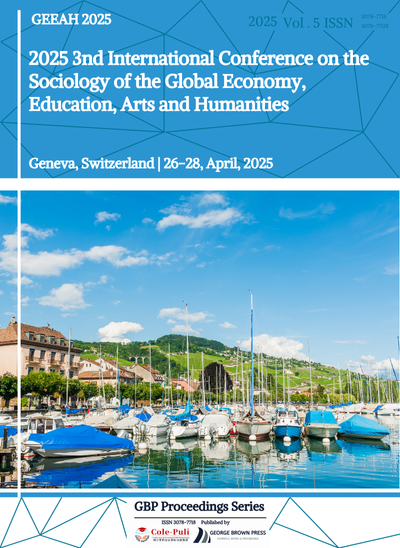Research on Restructuring the Piano Lesson Teaching Model in the Context of Artificial Intelligence
DOI:
https://doi.org/10.71222/9zsn6t89Keywords:
artificial intelligence, piano teaching, teaching model restructuring, personalized learning, adaptive feedbackAbstract
With the vigorous development of artificial intelligence (AI) in education, traditional piano teaching faces challenges such as low personalization, delayed feedback, and underutilization of classroom resources. Based on a systematic review of traditional piano teaching models and AI applications in education, and informed by cognitive psychology and intelligent teaching theories, this study employs a combination of questionnaires, in-depth interviews, and teaching experiments to analyze the current state and problems of piano classrooms. On this basis, we construct a restructured teaching model that integrates an intelligent teaching platform, personalized learning paths, and adaptive feedback, and conduct practical implementation and effectiveness evaluation in representative schools and student groups. The results show that this model significantly enhances student engagement, optimizes classroom management, and improves practice efficiency, while also revealing limitations in platform maturity and teacher training requirements. Finally, we discuss the feasibility and considerations for wider adoption of the model and propose future research directions in multimodal interaction and interdisciplinary integration.
References
1. K. Cui, "Artificial intelligence and creativity: piano teaching with augmented reality applications," Interact. Learn. Environ., vol. 31, no. 10, pp. 7017–7028, 2023. doi: 10.1080/10494820.2022.2059520.
2. N. Huang and X. Ding, "Piano music teaching under the background of artificial intelligence," Wirel. Commun. Mob. Comput., vol. 2022, art. no. 5816453, 2022. doi: 10.1155/2022/5816453.
3. Y. Guo, "The application of constructivism teaching theory in college piano teaching," in Proc. Int. Conf. Sports, Arts, Educ. Manage. Eng. (SAEME), Jul. 2017, pp. 21–28. doi: 10.2991/saeme-17.2017.5.
4. X. Wang, "Design of vocal music teaching system platform for music majors based on artificial intelligence," Wirel. Commun. Mob. Comput., vol. 2022, art. no. 5503834, 2022. doi: 10.1155/2022/5503834.
5. Z. Mo, "Artificial intelligence empowering online teaching of Chinese as a foreign language: Opportunities, challenges, and future prospects," Educ. Insights, vol. 1, no. 5, pp. 18–29, Dec. 2024, doi: 10.70088/nwwqch86.
6. C. Silarat, "Piano lessons: Fostering theory of mind in ASD through imitation," Int. J. Disabil. Dev. Educ., vol. 69, no. 1, pp. 154–169, 2022. doi: 10.1080/1034912X.2021.1947473.
7. M. Della Ventura, "From the music learning process to its effective design," Int. J. Emerg. Technol. Learn. (iJET), vol. 16, no. 21, pp. 13–25, 2021.
8. F. Addeo, G. Masullo, A. Ruopolo, A. D. Paoli, et al., "Learning with ICTs at primary level: Teachers’ and pupils’ perceptions," Ital. J. Sociol. Educ., vol. 13, no. 3, pp. 21–44, 2021. doi: 10.14658/PUPJ-IJSE-2021-3-2.
9. S. Satanassi, E. Ercolessi, O. Levrini, et al., "Designing and implementing materials on quantum computing for secondary school students: The case of teleportation," Phys. Rev. Phys. Educ. Res., vol. 18, no. 1, art. no. 010122, 2022. doi: 10.1103/PhysRevPhysEducRes.18.010122.
10. K. G. Papageorgiou, "Expert characteristics: implications for expert systems," in GeNeDis 2020: Comput. Biol. Bioinform., Cham: Springer, 2022, pp. 155–164. doi: 10.1007/978-3-030-78775-2_18.











